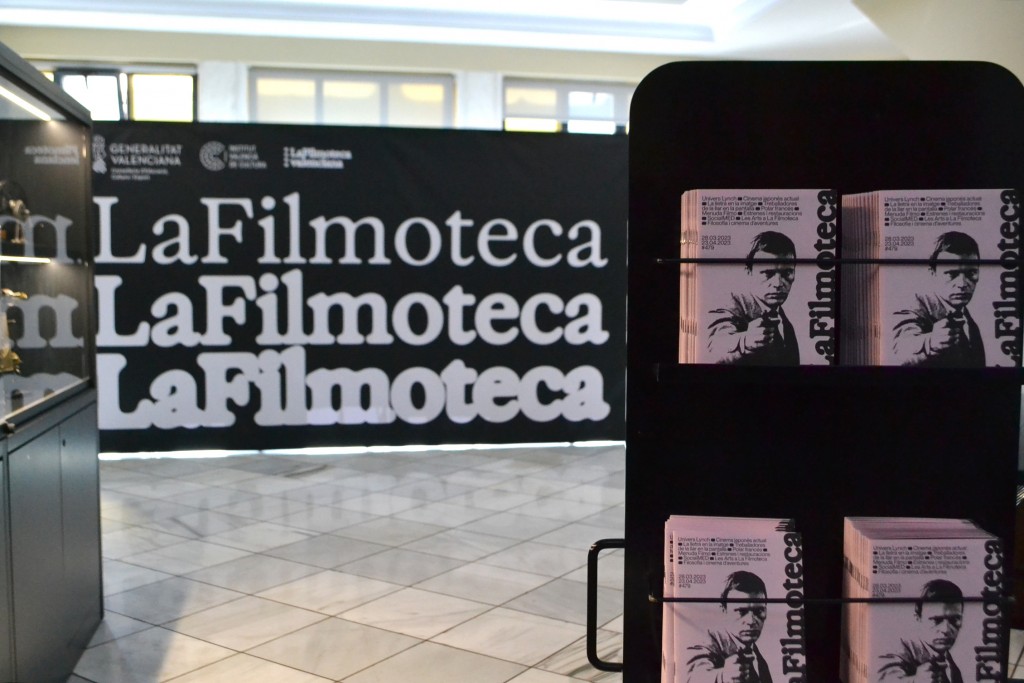
- For its second edition, the Humans Lab has selected a total of eight short film projects on human rights from among the more than 60 that have been submitted.
- Rafa Molés, director and producer from Valencia, will also give an exclusive pitch session for the selected people
- The Humans Fest audiovisual creation laboratory will feature prominent production companies such as Nadie es Perfecto, Nakamura and Pau Martínez González
The Humans Lab, the audiovisual creation laboratory launched by the International Film and Human Rights Festival of Valencia, Humans Fest, organized by the Foundation for Justice since 2009, celebrates its second edition this week. Specifically, Friday 29th and Saturday 30th November, when it will also host two master classes open to the public: one given by the director Almudena Carracedo and another, by the director Carlos Marques-Marcet.
Both sessions will take place in the Berlanga room The IVC Film Library. Carracedo will offer his on Friday, November 29 at 4 pm, while Marques-Marcet will do the same on Saturday, November 30, also starting at 4 pm. Free to attend, these masterclasses Prior registration is required due to capacity issues. This can be easily managed from here.
TWO DAYS OF INTENSIVE MENTORING FOR EIGHT FILM PROJECTS
Humans Lab has received a total of 58 applications this year, from which the following have been selected: eight projectsAlthough five positions were initially announced in the terms and conditions, the audiovisual laboratory organisers say they have decided to expand the opportunities due to “the number of proposals submitted and, above all, their quality”.
Specifically, the short films chosen for the second edition of Humans Lab are The puppet, by Fran Menchón (Barcelona); Submarine, by Lucas Moro and Manuel Rosell (València); Moha, by Hugo Suárez (Seville); The white lentils, by Alicia Arnau (València); Pigs and mares, by Maria Ferradas (Valencia); Alcria, by Óscar Jiménez (València); I just saw a UFO, by Andrea Segarra (Benicarló, Castelló); and Balloons, by Mar Navarro Herráiz.
All of them provide an approach to human rights from different perspectives, addressing issues that affect today's societyThis is the case of LGTBIQ+ rights, the fight against voracious urbanisation, historical memory, women's liberation in different generations, the reality of underage migrants in Spain and evictions, as well as media manipulation.
EXCLUSIVE LEARNING FROM PROFESSIONALS
In addition to the master classes, which will also be open to the public, those selected for their projects will have three exclusive learning opportunities. On the one hand, a tutored session one-to-one with Almudena Carracedo and Carlos Marques-Marcet, which will take place behind closed doors on Friday, November 29, at 6:00 p.m., in room 7 of the Rialto Building.
Also, on Saturday, November 30, at 10 am, you will enjoy a group preparation session for pitch by the hand of Rafa Molés, director and producer of Suica Films. Finally, that same day, at 6 pm, they will be able to test themselves in a Meeting with three Valencian producers: Nobody is perfect, with Ana Ramón Rubio as representative; Nakamura, with Óscar Bernácer as representative; and Pau Martínez González, director, screenwriter and producer.
NEW FINANCIAL SUPPORT FOR A PARTICIPATING SHORT FILM
Humans Lab presents an important novelty this year: one of the seven selected projects will receive, after completing the two days of training, a Financial endowment of 500 euros for the screenwriter, so that it can complete the development phase. To do this, a team will be available jury formed by producers and/or professionals from the audiovisual industry, who will assess the originality of the script, the defence of human rights and the viability of production.
ABOUT ALMUDENA CARRACEDO AND CARLOS MARQUES-MARCET
Almudena Carracedo (Madrid, 1972) began his professional career as a filmmaker in the United States, where he directed and produced Made in LA (2007), her debut feature-length documentary, tells the story of three migrant women working in a garment factory in Los Angeles fighting for basic labor rights. This work earned her the Emmy Award for Best Documentary in 2008, among other awards.
Class consciousness and social activism emanating from Made in LA are a constant in Carracedo's career. Thus, upon his return to Spain at the head of his production company Lucernam Films, he embarked on The Silence of Others (2018), another documentary that, in this case, addresses the silenced struggle for justice of the victims of the Franco dictatorship. The result of a seven-year process, this work received more than 40 awards, including the Audience Award at the Berlinale, the Goya for Best Documentary Feature, the Emmy for Best Documentary. In addition, it was shortlisted for the Oscars.
This year, Almudena Carracedo has premiered You are not alone. The fight against the pack (2024), a portrait of sexual violence against women. Taking as a starting point the group attack suffered by a young woman at the Sanfermines in 2016, this film collects the media treatment of the case and the response of feminism until giving rise to the so-called #MeToo Spanish.
This work, which has reached third place in the world ranking of non-English language films on Netflix, has just received the Ondas Award for best documentary. In addition to her extensive list of awards, Carracedo has been named Doctor Honoris Causa by Illinois Wesleyan University and is a member of the Spanish Film Academy, the European Film Academy and the American Film Academy, as well as the Board of Directors of CIMA.
For its part, Carlos Marques-Marcet (Barcelona, 1983) is one of the most acclaimed contemporary Spanish filmmakers. He started very early as his short film Amunt ia vall (2006) received the national award for Young Creators from Injuve and with Udols (2008) was selected by the prestigious “Cahiers de Cinema” as the best short film of the year.
It was then that she moved to the United States, where she studied the Master of Film Directing at the UCLA School of Film and Television, and began her career in feature films, with which she has addressed the human condition from different perspectives, such as motherhood, relationships and now death.
Her feature film debut came in 2014 with 10,000 km, a film for which he won the Goya for best new director, the Golden Biznaga for best film at the Malaga Film Festival and five Gaudi awards, including best director, best screenplay and best film in a non-Catalan language. At an international level he won the special award at the SXSW Film Festival and was awarded the new director award at the Seattle Film Festival.
Later, he arrived Mainland (2017), a film that included Geraldin Chaplin in the cast, and Those who will come (2019). The latter also won Best Film and Best Director at the Malaga Film Festival, among other awards.
In Valencia he filmed Guillem's death (2020), which tells the story of Guillem Agulló, a young Valencian anti-fascist who was murdered in 1993 by a far-right group. This earned him the award for best television film at the Gaudí Awards.
He is currently immersed in the promotion of his new feature film, which will hit theaters on November 15: They will be dust, a musical tragicomedy starring actress Ángela Molina and in which singer María Arnal and the dance company La Veronal collaborated.
Dust They Will Be It premiered at the Toronto Film Festival, where it won the Platform Award. In Spain it was the opening film of the 69th edition of the Seminci, which is currently taking place in Valladolid.
ABOUT HUMANS FEST AND HUMANS LAB
Humans Fest is one of the main activities promoted by the Foundation for Justice with the aim of defending human rights and denouncing their violations around the world through cinema, a powerful tool and power to raise awareness. It is part of the international Human Rights Film Network.
Its 15th edition (2024), which includes the Humans Lab, is being held thanks to the collaboration of the Vice-Presidency and Department of Social Services, Equality and Housing, the Valencia Provincial Council, the Equality Department of the Valencia City Council, the Valencian Institute of Culture, Caixa Popular and Teika. For its part, the Valencian regional radio and television channel À Punt is the official medium of the festival.
In addition, the Humans Lab initiative also has the support of the Institute of Cinematography and Audiovisual Arts (ICAA).
